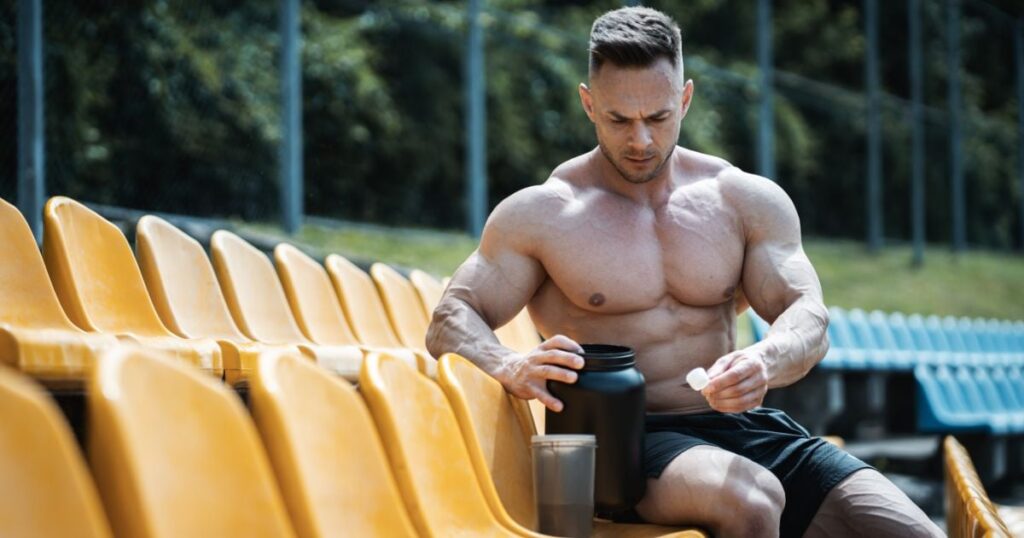

Hello, Ziddis! Please raise your hand if you think proteins are the most crucial component for muscle growth! a lot of you! You aren’t entirely wrong. While protein is unquestionably “one of the most important elements” for muscle growth, it also requires assistance. While protein provides the raw materials for muscle repair, it is only a part of the process. Vitamins and minerals that support processes like energy production, hormone balance, and muscle contraction are essential for true muscle growth and recovery. Also worthy of attention are these nutrients because without them, progress will be slower, you’ll feel more tired, and you might even hurt yourself. Learn which micronutrients really make a difference in muscle growth.
Contents
Essential Vitamins for Muscle Growth
Let’s start with vitamins, the lifeblood of our bodies. While they have their hands full with plenty of tasks to keep your body running healthily, the Vitamin complex is responsible for certain muscle growth-related processes too.
The hormone vitamin D is strong. Vitamin D is important for muscle strength and performance in addition to bone health. It helps the body absorb calcium and phosphorus, both of which are critical for muscle contraction and also for recovery. Low Vitamin D levels are linked with reduced strength and slower muscle repair, especially in indoor athletes and those with limited sun exposure. Therefore, it may be time to check your vitamin D levels if you frequently experience fatigue or lethargic feelings. Sources of vitamin D are sunlight, plant-based protein like peas and mushrooms.
Vitamin B is the energy crew. Each of the vitamin B-complexes performs an essential function. Collectively, they contribute to converting food into usable energy. They help metabolise carbs, fats and proteins. This fuel is what your muscles depend upon. Vitamin B6 and B12 also play roles in the production of RBCs and ensure that enough oxygen reaches the muscles. Whole grains, lentils, spinach, and eggs are all good sources of vitamin B. B12 is mostly found in animal products, so vegans and vegetarian athletes should pay close attention to it. Your muscles’ recovery booster is vitamin C. This contains antioxidants that shield muscles from oxidative stress brought on by strenuous exercise. Additionally, it encourages the production of collagen, which aids in the preservation of muscle, tendons, and ligament integrity. Vitamin C can be found in citrus fruits, amla, bell peppers and berries. Consuming these foods can speed up recovery and reduce soreness after exercise. Vitamin E is the shield for your cells. It is another antioxidant powerhouse that helps prevent muscle damage during exercise, as well as reduces inflammation. It ensures that muscle cells quickly recover from training by supporting the health of cell membranes. Nuts and seeds, avocado, olive oil, and other healthy fats are all good sources of vitamin E.
Essential Micronutrients for Muscle Growth
While vitamins handle energy and repair, minerals handle the muscle ability to move, contract and stay hydrated. This is crucial for providing muscle nourishment. The minerals clan’s heroes include: Magnesium, the mineral that relaxes, is necessary for more than 300 biochemical processes in the body, including the synthesis of protein, energy metabolism, and muscle relaxation. A lack of magnesium can cause cramps, exhaustion, and poor recovery. Almonds, spinach, pumpkin seeds and dark chocolate are some sources of magnesium. In menstruating women, it is also an essential nutrient that, when balanced, can alleviate abdominal cramps. Magnesium helps balance calcium levels and prevent excessive muscle tightness while improving your muscle flexibility.
Zinc is the growth catalyst that helps protein synthesis, immune health, and testosterone production. All of these are necessary for muscle repair and growth. Even a mild deficiency can slow down recovery and reduce the strength gains. Some sources of zinc in our everyday foods are chickpeas, cashews, pumpkin seeds and whole grains.
Iron is the vehicle for oxygen. Your muscles won’t get the oxygen they need to perform and recover without iron. It is important for endurance not just in athletes or while working out, but also in menstruating women. You can raise your iron levels by including lentils, tofu, spinach and jaggery in your meals. The absorption of iron from plant-based foods is helped along by foods high in vitamin C. Calcium’s Contribution to Muscle Contracture Bone health = calcium. We have come to believe this as children. But do you know that calcium is also important for your muscle health? It is vital for muscle contractions. The contraction process is sparked by calcium being pumped into muscle cells whenever you lift a weight. Afterwards, it is pumped again to allow the muscle to relax.
If calcium levels are low, this cycle will not prove efficient. It will result in sluggish contractions, cramps, or even injuries. Many athletes avoid dairy sources of iron and prefer sources like ragi, sesame seeds, almonds, tofu and fortified plant milks that can help maintain adequate intake. Pair calcium with vitamin D for better absorption and a stronger muscular response.
Supersets and Mineral Balance in Training
Supersets mean performing two exercises back to back. This can rapidly deplete electrolytes such as sodium, potassium, magnesium and calcium. These minerals support nerve signaling, muscle contraction, and fluid balance. When you sweat a lot, you lose electrolytes, which can lead to fatigue, muscle weakness or cramps. To maintain a balance:
Drink water that has natural electrolytes added to it, like coconut water or lemon juice with a pinch of rock salt, to rehydrate yourself. Have a healthy fit foods mix of complex carbs, proteins and minerals for your post-workout meal.
Take multivitamins instead of taking too many pills. Takeaway
Building muscles is not just about lifting weights, bulking up on proteins and spending hours in the gym, but also gives your body everything that is necessary for it.
Vitamins and minerals are crucial to muscle growth and should be taken seriously. Therefore, the next time you meal prep, look beyond proteins to see if your meal contains all of the nutrients you need to build muscle.




